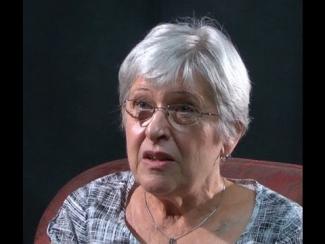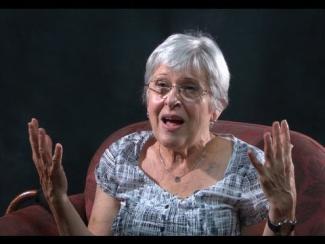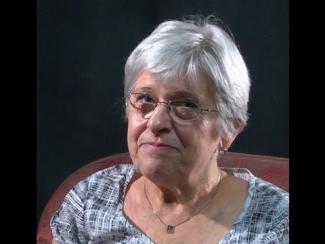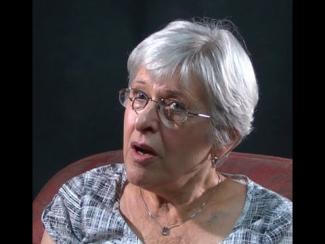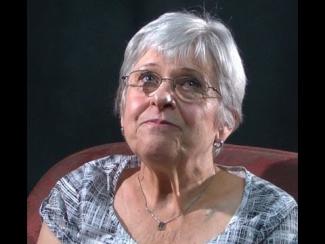The Yiddish Book Center's
Wexler Oral History Project
A growing collection of in-depth interviews with people of all ages and backgrounds, whose stories about the legacy and changing nature of Yiddish language and culture offer a rich and complex chronicle of Jewish identity.
Lola Paley-Byron's Oral History
Lola Paley-Byron, child survivor of the Holocaust and social worker, was interviewed by Christa Whitney on August 17, 2011 at the Yiddish Book Center in Amherst, Massachusetts. The first half of Lola's interview focuses on her Polish heritage, how she and her family survived World War II, and the experience of assimilating into American life. Lola describes her parent's life before they left Warsaw for Bialystok—the trip where her parents were married. Once in Russian territory, Lola's parents and their family were arrested and sent to Siberia. It was in the Siberian work camp that Lola was born, surviving her twin who did not live past childbirth. During the first eight years of Lola's life, she moved throughout Europe, first living in a small village in Siberia, then in Warsaw, then in a displaced person's camp in Germany, then in Paris where her family went to another displaced person's camp in Germany before eventually getting papers to go the United States, where she lived with her family's sponsor in Patterson, New Jersey. Lola recalls memories of living in each place, which family members she was surrounded by, the languages she spoke, and her experiences at school. The second half of Lola's interview focuses on her life as an adult, which began when she matriculated to New York University where she received her degree in sociology. This degree was followed by graduate work in social work, which led to her career as a foster agency employee and the director of advising at Maryland University. Lola shares stories of her own family—her daughter and two twin sons—and divulges the ways she integrated her Jewishness into her children's lives. With each story that Lola shares, she is sure to remind listeners that her Jewishness is part of who she is—not what she does, but who she is. Lola ends her interview musing about the importance of tolerance and her hope that more people will recognize its value in our lives.
This interview was conducted in English.
Lola Paley-Byron was born in Siberia, Russia in 1943.


